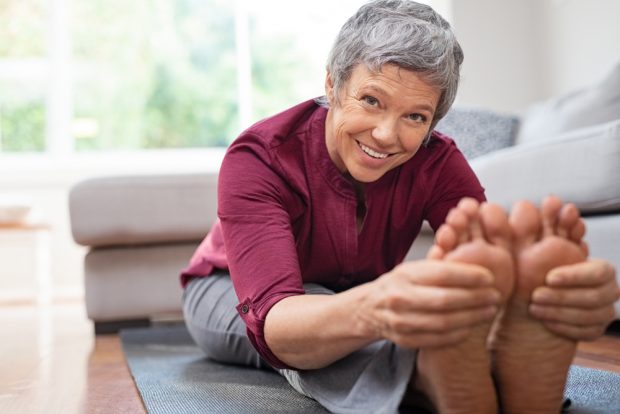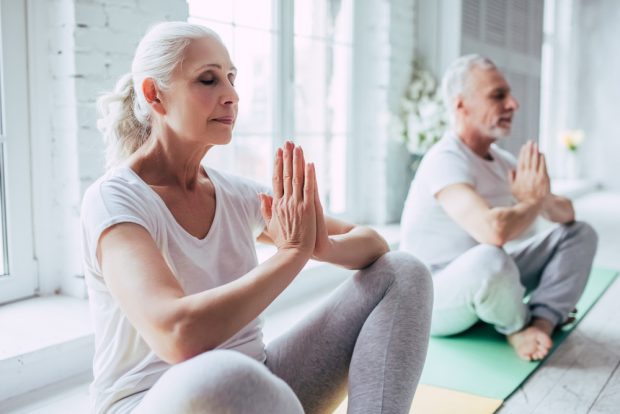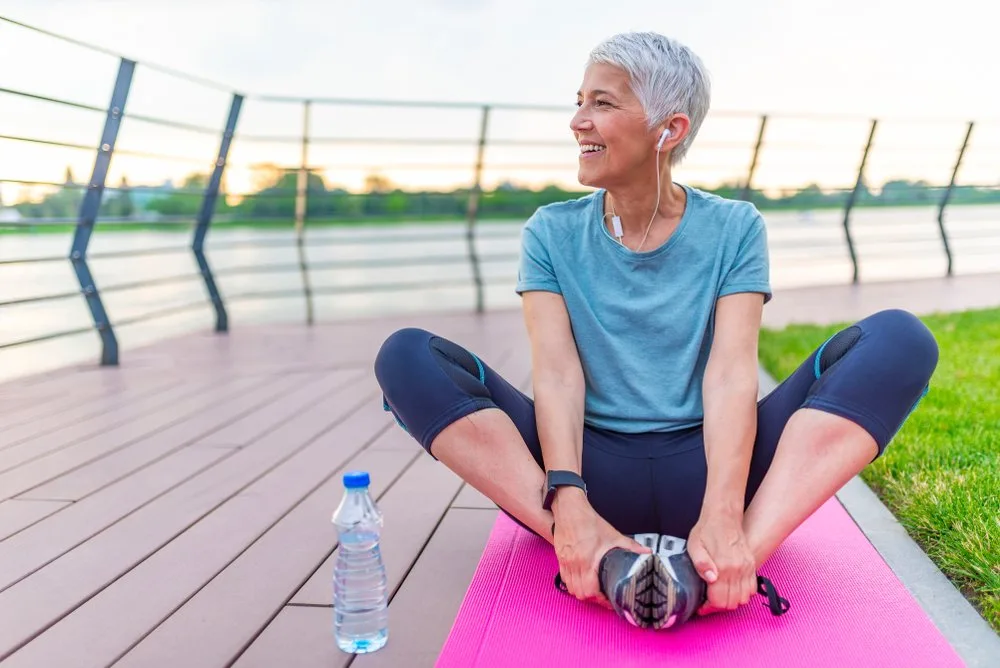Yoga brings several benefits to the elderly and can lead to a much better lifestyle. Read on to learn how and why you should start yoga later on in life.
During the later parts of your life, you may find that you have become quite lazy. This may be because your body becomes weaker as time flies by, or you have no time for physical activity. You may have stopped all the outdoor activities such as sports that you used to indulge yourself in.
Doing this can make life more complicated than before. You might ask yourself why and how you should start yoga since it’s becoming more popular. Yoga has no age limit, and everyone can try it out. In this article, you’ll learn the benefits of yoga for seniors.
Why Should You Start Yoga?
Yoga is an activity that builds a connection between your mind and body. With stretches and postures that strengthen your body, yoga for seniors is the perfect activity to stay fit. For seniors just starting with yoga, there are many physical, mental, and emotional benefits that will make your life much healthier.

Rido/Shutterstock
However, you may be discouraged since you have never tried it before and don’t want to become embarrassed. This is not a big concern since there are several yoga classes where people pursue a better mental and physical state. You can also bring along a partner or find a yoga buddy with whom you can do many poses that you both will benefit from! Now, here are some benefits that are sure to convince you to start yoga as a senior:
1. Improved Balance
Many yoga poses recommended to seniors focus on strengthening their abdominal muscles and improving their core balance. This helps in becoming more stable on your feet and will also reduce the risk of falling.
2. More Flexibility
Yoga helps us in many ways as we age. One of these ways includes becoming a more flexible person, as holding different poses for many seconds allows your muscles and tissues to relax and loosen. This makes your body much more flexible and hence is very beneficial for elders.
3. Improved Breathing
With age, many people experience difficulty breathing as their lung capacity decreases due to a lack of physical activity in their lives that train their lungs. Yoga can solve this problem since holding a pose and controlling your breathing in yoga (also known as pranayama) can drastically extend your lung capacity. Stay consistent and do yoga about three times a week, and the results will surprise you and make you realize how beneficial yoga for seniors truly is.
4. Helps With Weight Loss
The older we get, the harder it becomes to maintain our weight, especially since we stop going to the gym or exercising like we used to. Fortunately, yoga is also a form of exercise, which means that you can lose weight by doing yoga as well! The frog, lightning bolt, and bridge poses are all effective for losing weight.
5. Better Sleep, Less Stress
Yoga for seniors can help them get better rest at night. Studies show that adults over 60 often struggle with sleep disturbances. Yoga can easily cure this problem with a few sessions a week, and you should see an improvement in the quality and duration of sleep that you are getting.

4 PM production/Shutterstock
Additionally, anxiety and depression may also be an issue that seniors may be facing in their lives. Yoga can be a possible solution and be a form of meditation that can help your mind reach a sense of peace. Yoga also decreases the number of stress hormones produced in your body!
How Should Seniors Start Yoga?
There are several classes where seniors can go and learn various forms of yoga. If you do not want to go to classes then try doing yoga by yourself at home, there are some types of yoga that are recommended. Regardless of your aim, you will experience many benefits from doing yoga, especially supervised by instructors. Here are a few forms:
1. Hatha
Hatha is not a specific type of yoga, but rather a general term that consists of all forms of yoga that focus on enhancing your physical posture. Hatha is best known for the slow-paced sitting and standing poses that don’t get your heart racing suddenly, making it the ideal form of yoga for seniors who are just starting.
2. Iyengar
This form of yoga is much more precise, with a strong emphasis on achieving the correct form. Experts recommend using instruments such as straps and blocks to reach the proper alignment. If you have arthritis or other chronic conditions, this yoga is a must-try!
3. Restorative
This is another slow-paced form of yoga that emphasizes releasing tension built up in the body. Stretching is not the focus here, with props supporting your body as you hold poses for several minutes. This is often referred to as the best form of yoga for seniors who want to relax and find inner peace.
4. Vinyasa
This is a more intense form of yoga that requires you to maintain your breathing while moving continuously. The routines are typically much quicker, and the main emphasis falls on the transitions made between different poses. Although this is a more challenging type of yoga for seniors, they are more likely to remain fit and healthy through the process.
In Conclusion
That concludes the list of yoga forms and the benefits that come with them. Yoga for seniors is the perfect form of physical exercise, as it makes them less prone to injuries and helps them obtain mental and physical stability. Hopefully, you are convinced to try out yoga by now. We hope that this article has motivated you to try out yoga and become a healthier person.





![women [longevity live]](https://longevitylive.com/wp-content/uploads/2020/01/photo-of-women-walking-down-the-street-1116984-100x100.jpg)









